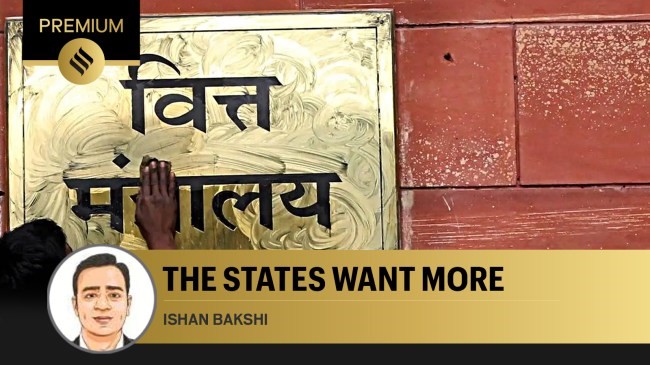16th Finance Commission

- 06 May 2025
In News:
The 16th Finance Commission (FC), constituted under Article 280 of the Constitution in December 2023, and chaired by Arvind Panagariya, faces a formidable task: redefining the contours of fiscal federalism for the period 2026–2031 amidst growing demands for fiscal autonomy by states and mounting fiscal pressures on the Union government.
The central concern is the shrinking divisible tax pool. Though the 15th Finance Commission recommended a 41% share of the divisible pool for states (reduced from 42% due to the reorganization of Jammu & Kashmir), the effective share received by states has hovered around 32%, owing to the increasing use of cesses and surcharges, which are not shared. According to RBI data, the divisible pool has shrunk from 88.6% in 2011–12 to 78.9% in 2021–22 of the Centre’s gross tax revenue. Consequently, many states are demanding that their share be increased to 50%, and a cap be placed on cesses and surcharges.
However, expanding transfers is fiscally challenging. The Union government is already borrowing to fund grants to states, raising concerns over sustainability and fiscal priorities. States account for nearly 60% of general government expenditure, and their argument for greater fiscal autonomy is not unfounded. A possible resolution lies not in increasing total transfers, but in restructuring the composition—shifting from tied to untied transfers.
The overreliance on Centrally Sponsored Schemes (CSS), which dictate how funds must be spent, has constrained state-level innovation and discretion. Rationalizing CSS and expanding untied transfers would empower states to prioritize their unique developmental needs. However, this is politically sensitive, as CSS often serve national priorities and electoral interests.
Yet, more untied funds come with trade-offs. Several states, including Karnataka and Punjab, are grappling with rising revenue deficits, indicating growing expenditure on salaries, interest payments, and subsidies rather than capital investment. This raises the risk that untied funds may be diverted to populist schemes, such as non-merit subsidies or quasi-universal cash transfers. A report by Axis Bank notes that 14 states have launched income transfer schemes, amounting to 0.6% of GDP, raising concerns about the long-term fiscal discipline.
A key question is whether increased untied transfers will improve inter-state equity in public service delivery. Low-income states like Bihar have far lower per capita spending on health, education, and infrastructure. Without accountability frameworks, there is a risk that increased autonomy may not translate into equitable development outcomes.
Moreover, the third tier of governance—local bodies—remains underfunded. Greater untied transfers could incentivize states to empower panchayats and municipalities, aligning with the principle of subsidiarity and deepening democratic decentralization.
Conclusion
The 16th Finance Commission must strike a delicate balance—ensuring fiscal autonomy for states without jeopardizing national fiscal stability. It must consider capping non-divisible levies, reforming transfer mechanisms, and introducing performance-linked incentives to strengthen accountability. Only a recalibrated, transparent, and equitable devolution framework can advance India’s cooperative federalism in both spirit and practice.
